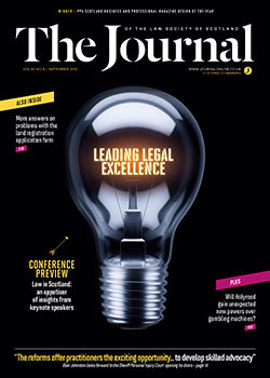Adoption of foreign children – a clash of cultures?
In a recent case, the President of the Family Court in England, Sir James Munby upheld a decision permitting a seven year old Latvian citizen to be adopted. The child was born in England and had lived there all her life.
The child’s Latvian mother and the Latvian authorities criticised the UK’s adoption rules, saying that they were out of line with the rest of Europe as other European countries have a greater understanding of familial ties, and the UK places insufficient weight on a child’s identity. The Latvian Parliament then accused the UK of breaching international law by putting the child up for adoption, believing that the child ought to have been put up for adoption in Latvia, which would have allowed preservation of the child’s national identity.
This is just one of an increasing number of cases in England & Wales involving children from other European countries. This increase, combined with the fact that the UK is unusual in allowing adoption without parental consent, has caused the adoption process to be scrutinised by European neighbours.
Sir James was alert to the criticism of the adoption system in England & Wales, and in an attempt to prevent future justifiable criticism, he issued guidance to those involved in adoptions involving foreign nationals. He urged local authorities and courts to be proactive in bringing care proceedings to the attention of the relevant consuls, stating that the court must consider whether to transfer the case to another country early in the proceedings. He also said that local authorities must consider adoption as a last resort and that the courts must consider a child’s background and the likely effect on a child of no longer being a member of his or her original family.
Although adoption is a matter devolved to the Scottish Parliament, our adoption laws also permit the granting of non-consensual adoption orders. Parental consent can be dispensed with if a parent is unable to discharge his or her parental responsibilities and fulfil his or her parental rights. Parental consent can also be dispensed with if the welfare of the child requires dispensation. This ties in neatly with Scotland’s overarching principle that the best interests of the child is the paramount consideration in cases about children (including adoption). This has been the case for decades, and goes beyond what is required by international law, which directs that the best interests of the child should only be a primary consideration. Rather than shy away from this fact for fear of criticism elsewhere in Europe, this is something that we ought to be proud of in Scotland.
As immigration to Scotland increases, it is inevitable that adoptions involving citizens of other countries will increase. It would do no harm to follow Sir James’s guidance in Scotland as it may minimise the risk of criticism of the adoption system. However, permitting adoption in the face of parental opposition (in limited circumstances) is not something to be ashamed of – it helps to illustrate the level of respect afforded to, and the importance placed on the wellbeing of, children living in Scotland and in fact the rest of the UK.
In this issue
- Good health – fair question?
- Time to raise the age of criminal responsibility
- Adoption of foreign children – a clash of cultures?
- Presumed liability: the case for action
- Le Bief Bovet: 700 years of litigation
- Reading for pleasure
- Opinion: James O'Reilly (fuller version)
- Opinion: James O'Reilly
- Book reviews
- Profile
- President's column
- Land Register completion update
- People on the move
- Conference calls
- A new court rises
- Questions of form
- Charities - why reserves matter
- Place your bets
- Pensions: a formula unravelled
- Whereabouts unknown?
- Lego Man keeps his mark
- The company one keeps
- Scottish Solicitors Discipline Tribunal
- Land, leases and LBTT
- Big budget brief
- Support sought as Napier joins the law clinics
- Public Guardian's fees to increase
- Law reform roundup
- TCPD: the Update way
- How are we doing?
- Thanks, but no thanks
- Ask Ash






